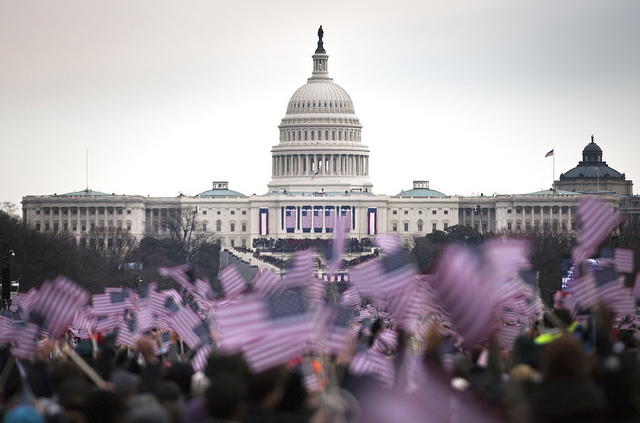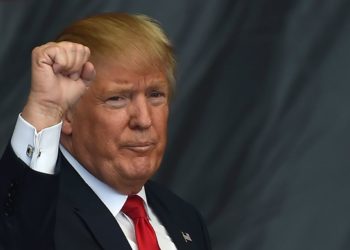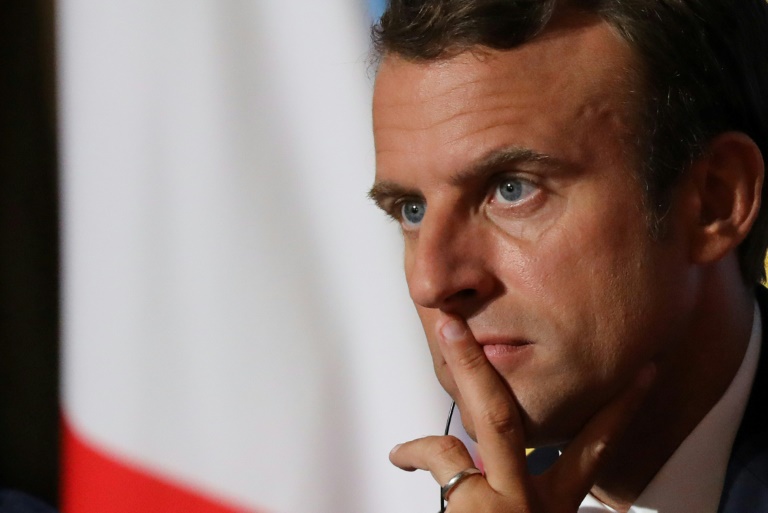In November 2016, the citizens of Washington, D.C. had a chance to vote for the first time for statehood, casting ballots in favor of petitioning Congress to allow it to become the 51st American state and be represented in the U.S. Congress.
Back then, the referendum showed District voters overwhelmingly in favor of statehood, with 87 percent in favor and only 13 percent dissenting.
After almost three years and ahead of 2020 elections, a historic hearing on the issue in the House of Representatives is scheduled for September 19.
But a Gallup survey published last June found that only 29 percent of Americans as a whole support statehood, with 64 percent opposing it.
Despite public opinion being currently against the idea, Democrats running for president are including D.C. statehood in their political campaign, stressing its importance for citizens’ representation and democracy.
Before candidate Michael Bennet announced his support for making the nation’s capital a state, South Bend, Indiana, Mayor Peter Buttigieg had made it as one of his leading points.
Buttigieg was the first Democratic presidential candidate to mention his support of D.C. statehood during the July debate in Detroit. He had also already expressed his support for the idea on his Twitter account in February.
Pete Buttigieg name-checked D.C. #statehood in last night's debates. What do all the other Democrats have to say about it? https://t.co/dMSNyxtMKz
— NBC4 Washington (@nbcwashington) July 31, 2019
“Democracy is front and center right now, but some very important dimensions (like electoral college reform, DC statehood) get way too little attention,” he wrote. “We must not become the first generation to see USA get less democratic versus more.”
“We will give full political representation to the people of D.C.,” his campaign website says, explaining that by creating a new state, it would give D.C. residents one congressperson, two Senators, and three votes in the electoral college.
With more than 700,000 residents, D.C. has a higher population than two states- Vermont and Wyoming – and is close to the population of Alaska and South Dakota.
As part of Buttigieg’ plan to invest in the “empowerment of Black America,” the 37-year-old American politician states if it were a state, Washington, D.C would have the highest proportion of Black citizens–approximately 50 percent –of any state.
The message “taxation without representation” has become popular and started to appear on D.C. license plates to highlight what many residents feel is their unequal status. While several non-governmental organizations were set up to follow the issue.
After 25 years, D.C. statehood will receive its first Congressional hearing on September 19. It had originally been scheduled for July but was rescheduled because of a conflict with Robert Mueller‘s testimony.
“D.C. statehood is one good example of voter suppression. In the central area of D.C., which is non-residential, no-one lives expect for the White House, but the rest of the city is filled with 700,000 people, much more people than live in Vermont or Wyoming – respectively 572,381 and 627,180 – and we have no voting representation in Congress,” Kathy Chiron, President of the League of Women Voters of the District of Columbia, told The Globe Post.
With or without the statehood, D.C. residents have the same commitments of any other American citizen, such as paying taxes and serving the military, except for having a voice in the Congress.
Together with the League of Women Voters of the District of Columbia, before September 19, numerous nonpartisan organizations are taking action to inform on the hearing as many people as possible, including signing a petition or filling a letter to send to their Congressional delegation.
More on the Subject
US Civil Rights Groups Demand Action to End Voter Suppression



















